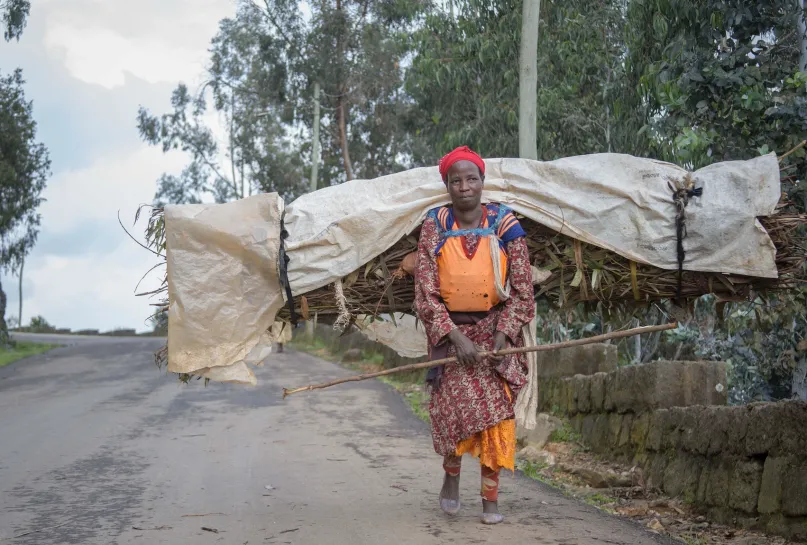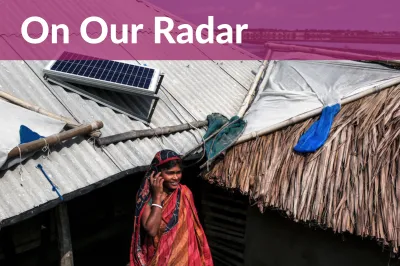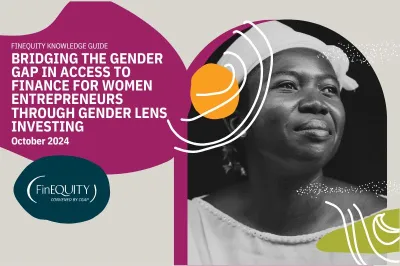COVID-19 Gendered Impacts on Livelihoods in Africa: A new Sex Disaggregated Data Set for SSA

COVID-19 Gendered Impacts on Livelihoods in Africa: A new Sex Disaggregate Data Set for SSA Webinar and Blog Series
FinEquity is pleased to partner with FinMark Trust (FMT) on a webinar and blog series to share the impacts of COVID-19 on livelihoods across seven countries in Sub Saharan Africa. Insights are based on data collected and published by FinMark Trust through innovative telephonic interview techniques coupled with additional analysis from FinScope data, to draw new insights on poor and low-income women. In our first webinar FMT shared its methodology for collecting the data; where the data can be found; and some initial insights focusing on the pandemic’s impact on women’s resilience and economic participation. This blog summarises some of the highlights.
(For more details please listen to the webinar recording and visit the slides here.)
What is the COVID-19 Data Tracker?
The COVID-19 Tracker is a free-to-use website that tracks health indicators, risk behaviors, food security, income levels, work and job security, personal safety concerns, and access to government and community support, on a sex disaggregated basis. The COVID-19 tracker is currently live in Kenya, Nigeria, South Africa, Rwanda, Uganda, and Zambia. Currently there are 3 waves of data in most markets, with another 2 waves of data still to come. The initial release of data was published in the first week of May 2020 and will be updated with subsequent releases and updates over the next 14 weeks.
Users can access over 80 indicators and filter the data by sex, geographic area, region and age. The survey data is visualized in a simple manner where users can view the waves of data in a timeline series, or they can opt to download the raw datasets in multiple formats. Other new functionalities will be added to the interface.
To access the data, receive notifications of new data uploads and updates users should subscribe here.
How is the data collected?
FinMark Trust collects the data via a series of telephone surveys. FMT have found that the mobile phone is the best tool for reaching people during COVID-19 times, as in-person surveys are no longer a viable option. Mobile phones also provide a faster and more cost-effective opportunity to rapidly collect data. This is not without concerns about excluded populations, particularly poor, rural women, who cannot be reached by mobile phone.
To mitigate these challenges, FMT drew on its insight2impact data experience to design a survey sample that ensured adequate representation of people living below the poverty line, people living in rural areas, and women. They also applied a modeled weighting framework to the data to ensure that had both a nationally representative picture that they could analyze across specific subgroups of interest.
What is the data telling us so far about the pandemic’s impact on women’s resilience?
Insights from the first waves of data indicate that the COVID-19 crisis is further reducing the resilience of women to shocks. Taking Rwanda as an example, 86% of the women compared to 73% of men reported that it would not be possible to raise emergency funds in 7 days during the crisis and similar trends are observed in South Africa, Uganda, Kenya & Nigeria. In terms of the strategies to cope in times of financial shocks, men rely more on savings, regular earnings, selling assets and doing more work to increase earnings, whilst women are less likely to rely on such formal sources. Women have a greater dependency on gifts and loans from family and friends, savings groups, employers, and money lenders. This makes them more financially vulnerable as family and friends are likely to be equally affected by the pandemic.
Women are struggling with earning income, meeting household expenses and loan repayments, which intensifies their vulnerability. For women to earn more, they need to be working and expanding their sources of income, but so far, the tracker shows that women are not as economically active as men. Analysis of economic sectors by gender shows that women are over-represented in the goods and services sector, which are more affected by lockdowns. Of those that borrowed, a higher proportion of women reported not being able to pay off the debt than men, due to loss of income – their own or that of another member of the family and the need to prioritize expenses for essential goods and other debts.
With limited economic participation, compromised income, the inability to raise emergency funds, and heavy dependence on loans from family and friends, the emerging COVID-19 Tracker Data indicates that the pandemic is disproportionately reducing women’s financial resilience.
In future webinars and blogs, we will take a deeper dive into the data from three countries – Uganda, South Africa, and Nigeria - to compare trends and showcase how some of FinEquity’s members are using new sex-disaggregated data sets to inform programming around women’s financial inclusion and empowerment under our new operating environment.
Register for our next Webinar: 22 July 2020 at 9am EST / 3pm SAST


